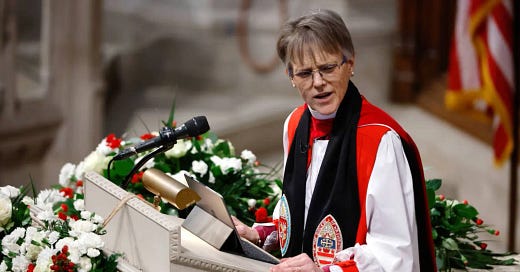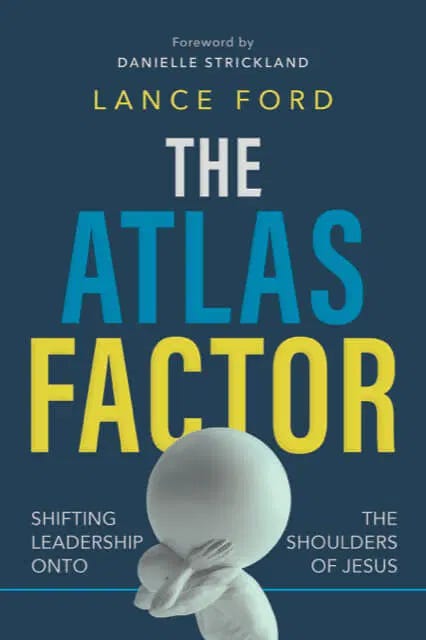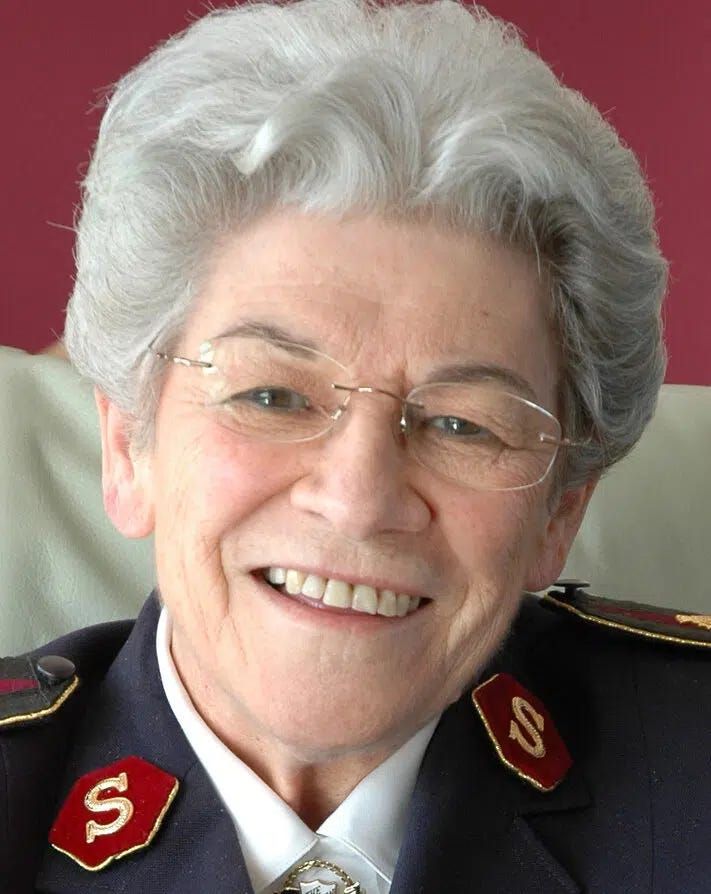The 47th president, toxic leadership and moral collapse
And how to lead like Jesus in the midst of it.
On Monday I watched the inauguration of the 47th president of The United States with some shock and horror. I witnessed in real time, with tens of millions of other people, the triumphing of a ‘strong man’ leader who took every opportunity to attack his already defeated opponents and use his platform to promote fear-based executive decisions and grandiose illusions of returning America to a ‘former glory’ of world domination. All of this was framed as a calling from God, with God’s protection and God’s divine favor.
Now, I don’t expect much from political leaders, particularly this one. I’m also not American, so I have no party to protect or political allegiances to maintain. But one of the more crushing truths revealed, as nationalism infects America, has been the corruption of the church and the corrosion of her influence. Christian leaders have aligned themselves with power that ascends, claiming wealth and prosperity as blessing, influence and power as gifts from God, and trading the words of Jesus for self-focused, self-promoting, self-ish gains. All this is done for God and for ‘God’s glory’. It’s one more symptom of a sickness that has corrupted the soul of the western church.
WASHINGTON, DC - JANUARY 21: Bishop Mariann Edgar Budde delivers a sermon during the National Prayer Service at Washington National Cathedral on January 21, 2025 in Washington, DC. Tuesday marks Trump's first full day of his second term in the White House.
If you hung in there for the National Prayer Service you would have witnessed the church operating like a faithful witness through the words and prayers of Bishop Mariann Edgar Budde. She pleaded with the new President to be merciful. And pointed out that he believes God has given him this position, and that God is merciful.
Late Tuesday night the President had already demanded an apology. I guess the idea of mercy doesn’t jive with his leadership style. And this is the crux of it. When you suggest that God has mandated that you lead with authority, fear, threats, intimidation, character assassination, and punitive outcomes for any and all who disagree with you - then mercy has no place. And while we’re at it there is also no place for grace, or love, or kindness or well, Jesus. If you claim that God has called you and anointed you for this task then it begs the question, ‘what god?’ If there is no room for Jesus, no room for mercy, no room for kindness then clearly you are not being equipped by the God who is revealed most clearly through the words and example of Jesus.
Last year Lance Ford asked me to write the foreward for his new book Atlas Factor. With over three decades experience as a pastor and church planter, Lance has a deep concern with the way Christian leaders have been formed to lead and the results of it in tragic outcomes in the western church. Most of us are familiar with Atlas, the mythological Greek figure condemned to hold up the heavens. And many Christians leaders suggest this is how they feel.
Lance writes, “In an era plagued by the fall of influential pastors, it’s time to reconsider our fundamental understanding and application of leadership. The Atlas Factor sheds light on the tragic mistake of replacing the God-ordained headship of Jesus with human-made systems and presents a way to realign the body of Christ with its true Head. Only when we shift leadership onto Jesus’ shoulders can we become the beautiful, joyful, Spirit-filled expression of the church God intended us to be.”
Here is my foreward to that book which serves as a call to the kind of leaders we need right now, who in the spirit of Jesus will ask the good questions, do the good work, and be the examples of those truly sent by and anointed by God in the self-giving, co-suffering, transforming Love of Jesus.
Foreward:
I’m gonna be honest. I’m struggling to keep my hope alive for the current state of the North American church. I’m exhausted by the seemingly endless revelations of complete moral collapse and what seems to be a genuine systemic flaw that produces people who use their power to protect themselves at the expense of others. I feel like I am banging my head against a wall as I talk with boards across Christian sectors (churches, NGOs, parachurch ministries, seminaries), whose primary impulse is to protect “the brand,” even at the cost of truth and the care of its members. What have we become? And how did we get here?
Now, I also know that there are thousands of devoted Jesus-followers—often overlooked and unseen—who lead faith communities beautifully and self-sacrificially. These leaders represent the light, life, and practices of Jesus in glorious, humble, and selfless ways. Persevering and consistently present, they are a witness to the character of God. They are a light in dark times. I’m grateful for them. And I long to be more like them.
I’ve benefited from the influence of incredibly powerful and gifted leaders who have modeled to me what it looks like to lead like Jesus. I was mentored Eva Burrows, the world leader of The Salvation Army. She led more than a million members in over 120 countries. She was a beloved leader who could hold stadiums of people spellbound with her preaching and yet still know the names and stories of individual people serving in the back alley behind the stadium. When this wonderful woman retired, she felt the Spirit leading her to spend her final decades working to serve the poor—returning to her original missional calling. If you were homeless, lonely, and cold on the streets in the downtown core of Melbourne, Australia, you could find a warm Salvation Army urban center, with coffee on, welcoming you to a community of Jesus-followers. And the first person you’d meet—the one waiting at the front door—was the former leader of a world movement, who would greet you with a smile, give you a firm handshake (or often a hug), and welcome you home.
General Eva Burrows at age 85.
That’s not all she did; she also lent her authority and influence to empower the whole community and to support other important and credible issues. She regularly called the mayor, met with funders and CEOs of global initiatives, and always advocated for the marginalized. Her witness of faithfulness has always been like a flame burning deeply within my own spirit, reminding me of the kind of leader I’d like to be.
There are many more like her. But not nearly enough. And even though they exist, they are almost invisible behind the giant billboard of “successful” and “independent,”predominantly male “expert leaders” who are ascending to greatness, triumph, and victory. Those leaders—often called pastors—operate more like kings than priests and lead people into self-ascendancy and grandiose importance, far removed from ordinary people. This is the hierarchy of current church leadership that threatens to undo the entire witness of the church in our culture. And tragically, I believe it is also the greatest threat to the leaders themselves. They get caught in a cycle of self-centering systems, trapped in the moving gears of worldly power, trampled under the weight of responsibility,and end up unseen, unknown, and unloved.
This is the greatest tragedy of our times in the church. We are stuck in systems and mindsets that sound empowering but fuel an oppressive cycle of control and autonomy that drives us through fear, isolates us from others, and serves itself.
What are we to do? How do we get off the hamster wheel of Western church “success” that isn’t leading to transformation? When can we start asking the kind of questions that might lead to our mutual flourishing and liberation? What if Catholic social activist Dorothy Day was right when she pinpointed the real problem concerning poverty is not that individuals are stuck in its grip but that we keep bolstering the systems that support and sustain it? Our problems, she said, stem from the dirty, rotten system. And until we get to the heart of the issue—which is our complicity with systems that oppress—we will never really solve the root issues and liberate anyone. This liberation is at the core of this book. What if the problem is not just one leader failing but a whole system of belief and practice that is rooted in a false ideal of what leadership even is? What if the construct of “success” is distorted and needs a transformation? What if the answer is in Christ? What if we took the time to unpack our assumptions and mindsets around church and leadership and allowed the Spirit of Christ to transform not just our practices but our rooted beliefs?
In a world where we emphatically agree that power corrupts, Jesus personified a divine power that didn’t. Jesus had absolute power and remained completely untainted by it. That itself is something that should compel us to revisit the divine calling and equipping of the church. To access power, steward it faithfully, and keep giving it away is the work of the church and the essence of the gospel.
I pray this book helps you fall in love with Jesus again. I hope this book disrupts your cultural concepts of leadership and church. I believe these words can be a catalyst to unleash a fresh hunger for divine power—an incorruptible, dynamic energy, freely given for us to freely give away. In this way, we unshackle ourselves from theories, systems, and burdens that wear us down, corrode our faith, and exhaust our resources. Together we can identify the things that steal, kill, and destroy (John 10:10), even if those things have been handed to us as a “Christian principle.” We can contend instead for the life-giving abundance of Jesus.
This is my greatest hope. I’m believing for the day when every “successful leader” finds themselves as a doorkeeper in the house of the Lord … welcoming everyone home.






